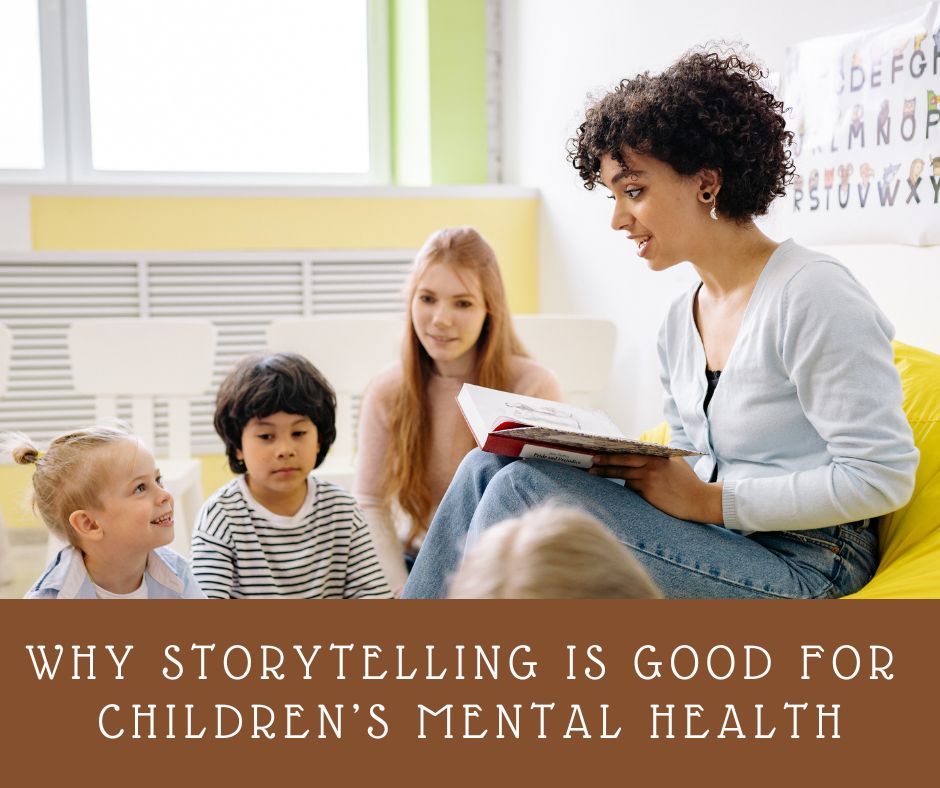People have been telling stories around campfires since before writing was developed. Early people passed on stories from generation to generation. This is the oldest method of communication we know of. These stories were used to impart wisdom, beliefs, values, customs, and culture to newer generations and to pass on knowledge, ideas, and values.
Humans are distinguished from other creatures by our ability to organize our experiences into stories. It’s a method for people to feel in control of the world and to find patterns and purpose amid chaos. This is why storytelling is an essential aspect of every culture; it is a vital part of our daily lives. All of this is because the human mind is naturally drawn to stories.
The psychological advantages of storytelling
The psychological benefits of stories and how they aid children include providing a sense of belonging, teaching empathy, and teaching children how to deal with their emotions. All of these things are critical for a child’s growth and development to promote cognitive growth
People appreciate stories, whether they are told or heard
When a child turns the words of a narrative into fantastic visuals in their heads, their imagination expands. Stories create brain connections between the individual telling the story and the person hearing it. This is referred to as “neural coupling” by scientists, and it occurs when similar portions of the speaker’s and listener’s brains are activated.
Stories aid in the development of a child’s imagination, creativity, and language skills. They better understand what they perceive, recall information, and solve issues. Making stories more fascinating for children helps them remember the story and teaches them how to express their opinions and feelings.
For emotional development
Stories don’t merely connect the thoughts of those who tell them and those who listen to them. They also help to bring people together. Hearing stories from parents and other caregivers is essential for a child’s emotional development: it strengthens their ties.
Then, stories teach children how to distinguish between different emotions, increasing their emotional literacy because they frequently experience what the characters experience. It inspires astonishment and wonder in them, as well as optimism.
It teaches children how to listen and comprehend
Most children must be able to focus for a short period and have the patience to do so. This is why retaining their attention for an extended time is so tricky. When youngsters are told stories, they prefer to listen. Stories teach youngsters to pay attention, listen, and comprehend.
When they listen to simple, linear stories about a hero who overcomes problems, they learn how important it is to have perseverance, grit, and resilience, all of which are good for their health.
It gives them a sense of belonging
People use stories to make sense of their surroundings. Myths and folktales from various cultures are all unique. They provide people with a sense of purpose and belonging while allowing them to get to know one another better. People are wired to connect, and technology enables us to do so.
It encourages people to interact with one another
Storytelling teaches children to pay attention and concentrate on the speaker. Because children must listen to the speaker, they learn to listen and begin to see the world from multiple perspectives.
Telling stories to your children also brings you closer to them. Children desire and require parental time and attention. So take advantage of the time you spend telling stories as an opportunity to become closer.
It boosts memory
Asking questions before, during, and after the report is an intelligent approach to making the most of every time you read a story to your child. This makes it easier for children to recall the events of the story. It’s a terrific approach to see how much they remember and how much they can improve their memory.
It provides them with a broader perspective
Other stories from throughout the world have additional cultural teachings and values. As a result, telling your child stories exposes them to diverse cultures. This teaches children how to understand others and how people around the world talk about themselves and their beliefs. It then educates kids about various customs and cultures and how to appreciate and value those who are different from them.
It improves your intelligence
When children are required to listen to and pay attention to what the storyteller says, they may visualize what is happening. They imagine the situations, including the people and locations involved. They consider the characters heroes, but the plot is more significant. This is analogous to solving a complex problem—a necessary skill for brain development.
Stories with action, in particular, encourage youngsters to engage their imaginations. You can show the characters’ thoughts and make each word more potent by moving and talking.
